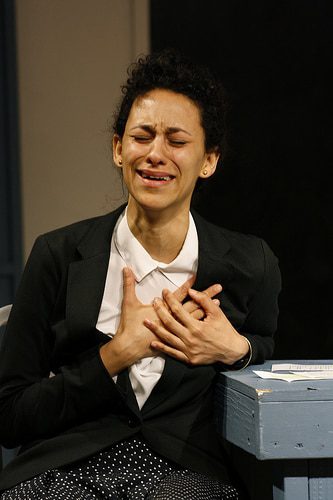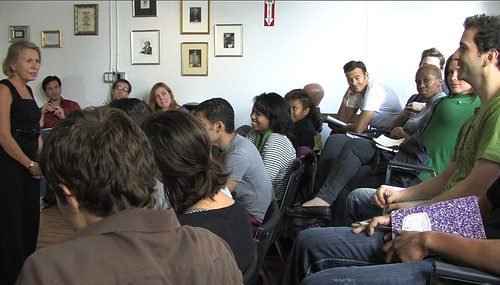
There are six aspects to consider when looking at the actors instrument. They are: physical expression, emotional expression, imagination, sensory expression, intelligence and empathy. In the Meisner technique method, all aspects of the actors instrument need to be addressed and considered and are essential to mastering the craft. If you run down the categories mentioned, anyone even slightly interested in acting should be able to name successful actors who have mastered several of these aspects of expression. Rarely, they are actors that come along and become the best of the best by being gifted at them all.
Sylvester Stallone is a physical actor who commands attention simply because of his physical presence onscreen. This doesn’t mean that he can’t express himself emotionally, it just means that his physical presence is the most developed of his acting tools. For Stallone, emotion is an internal process but it is reflected in a very physical way. This is why actors must focus on learning about each and every aspect of the instrument, so that they can be as well rounded as possible.

Emotional expression gives meaning to the story. It clues the audience in to what the character is about, the conflicts they face, what their deepest needs are. Meisner acting is very popular, and these actors work hard to develop an emotional composite of a character, which they in turn, figure out how to express using the other aspects of the instrument. In Meisner acting students study emotions diligently, their own and those of others. They in fact, build a library of emotions and reactions and methods for communicating them. When a specific character needs to be presented, these then delve more deeply and specifically into imagining (another aspect of the instrument) what the character’s emotions feel like. They create and live the emotional life that the character would live so that it is instilled in them and can be called upon at will.
Vulnerability, for example is an expression of the emotion of insecurity. It’s one thing for an actor to understand that and work with it. But, if they have strongly developed other aspects of their instrument, such as physical expression and empathy, they will be able to present an authentic, vulnerable character. A single tear, without words can accomplish this, but how about a sense of vulnerability shown while one is smashing a clock to pieces? These are very nuanced yet, essential things to study.
Acting is not pretending to have an emotion. Acting is not “emoting,” by injecting emotion into a script. As Sanford Meisner always said, Acting is DOING. In other words acting is being in the moment and allowing any number of emotional reactions well up and take you over and turn you into the actual character. It is a subtle yet, very important distinction. Great actors do not force themselves to cry. They feel genuine, strong emotions and a sense of grief or loss and images makes them cry. This process requires that an actor develop the capacity to create and feel true sensations, and then express that through all channels of their instrument. Actor must give themselves permission to feel strong emotions, and express them (or not, if the role requires it) in physical, intelligent, empathetic ways.

To learn more about Meisner acting and other acting classes at the studio, call (917) 794-3878.



